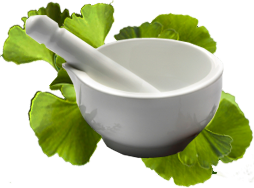Is the key keeping things out?
If I were a betting man, I’d be willing to bet that all Americans at one point in their lives have considered “going on a diet.” How could you not? We live in a world that loves beauty, embraces the idea of living longer, and craves the perfect body. Yet, in spite of all of the commercials, products, gimmicks, and advice, America is still a leader in obesity rates the world over. So, why is that?
There are a number of studies, theories, and arguments out there that blame everything from too much fat to too little physical activity. But for this post, I’m not even going to begin to try and suggest what the TRUE answer is. Rather, I’m going to talk about the one conclusion that all the studies have come to, and that’s the fact that to be healthy you must have a healthy diet. So the question becomes, “to have a healthy diet, what can I eat?” Well, there’s a good chance that you are eating a lot of what you’ve needed already, just not in the right form.
In recent years, there have been a slew of studies from near and far that have shown a very disturbing trend about the food that most Americans eat: IT’S BAD FOR US. That’s right, no longer can we point plump fingers at McDonald’s and the Big Mac Epidemic of yesteryear. Sure, they still contribute to the problem, but that’s a foregone conclusion. Unfortunately, many of those processed foods and additives that the experts tell us to avoid are packaged and sold on the shelves of grocery stores under the guise of being healthy. It’s sustenance and being sold in a grocery store, so it must be good for you right? Wrong. The secret is out that processed foods like those we buy in boxes found in the endless store aisles can contribute to our biggest health concerns and, many times, this is in spite of a label indicating otherwise. For example, “light” or “fat free” product labels on foods that provide zero nutritional value can lead to misinformed purchases.
Now, let’s be clear about what we are talking about here in regards to processed foods. Processed foods are most often convenience foods. That is, they are empty calories that do not provide any nutritional benefit to your body. Some processed foods, when raw, may be healthy for us in moderation, but when processed they become an inefficient, nutrition-lacking shadow of their former selves. They go through many complex processing steps, often injecting additives, artificial flavorings and other chemical ingredients, and are lacking in many of the nutrients and minerals we need in our daily lives.
On top of that, most processed foods, when ingested, deliver a bevy of simple carbohydrates to your body that proceed to wreak havoc. Given their simple make up these carbs are digested easily by the body and cause a spike in your glucose levels, which leads to a spike in your insulin production (insulin carries the glucose). Ultimately, this shocks the body’s insulin and has been linked to chronic diseases such as diabetes, inflammation, and heart disease.
Now, that is just one of the many problems that processed foods can cause, and we haven’t even begun to talk about America’s favorite unhealthy food: processed meat. Did you know that it’s been estimated that nearly 70% of all antibiotics in the US are used on farm animals like pigs, chicken, and cattle? You might be wondering why, and you’ll be disappointed to learn it’s just so that the animals can get bigger, faster. Imagine an athlete on steroids for dinner and you can at least visualize how unappealing this is.
So what do we do when the food in the stores is bad for us? Well, first, don’t panic. Fortunately, the lesson being learned these days is that NATURAL, WHOLE foods are good for us, and that it’s just as much about what you keep out of your as it is what you put in. In fact, if we just take a quick glance at some popular diets out there and look at what they leave out, it’s no wonder they are associated with increased health:
Low-Carb Dieters leave out sugars, white flour and many processed foods, which are loaded with synthetic “nutrients”. Much better! But what is the quality of the animal foods they eat – factory-farmed and sick? Antibiotic- and hormone-laden, consuming very questionable genetically-modified feeds or feeds containing other animal parts & feathers?
Vegetarians avoid meat from cows, chickens, or even fish raised in overcrowded, industrialized factory farms. But are the soy and whey products that they may consume instead grown on farms that use pesticides?
Vegans do not consume nor purchase animal products in order to avoid the hormones, antibiotics and cruel practices that are often associated with any animal product. This approach is far more humane, but for the vegan’s health, other dietary risks may be in play. Seed oils (corn, soy, canola, safflower, sunflower) ALL have mega-trans fats from their processing, no matter what the label says. Unadulterated olive and coconut oils are best to eat, but harder to find in an affordable pure, high-quality form.
Eating organically grown foods may limit many of the chemical toxins found in a

majority of products that are produced in America or imported by multi-national corporations. But many items sold in health food stores that claim to contain organic ingredients also have excess ‘organic’ sugars or fake sweeteners, genetically modified foods and oils (canola), not to mention extruded grain products saturated with trans fats, or other processing.
You’ll notice that even in diets that are touted as healthy, certain dangers may lie in wait. So the question still seems to be, “What do I eat? What’s the key to healthy dieting?” Unfortunately, I can’t fathom being able to tell you exactly what you should eat. However, based on countless studies of chronic and debilitating diseases, I CAN tell you what not to eat: PROCESSED FOODS. Begin your road to health by taking out as much processed food from you diet as you can. Start it this week. Start it tomorrow. Start it now. Take 5 days and stick to organic, wholesome and nutritious foods – nothing from a box. Take in the delicious taste of chemical-free fruits and veggies, savor the flavor of a grass-fed chicken breast from a free grazing, and enjoy the healthy body you were meant to have. After all, it’s your body, your health, and your choice.
If you are looking for a great resource to use to get you started, read Recommendations for a Healthy Diet
By Craig Bothwell
Also check out these books we offer through our storefront:
Nutrition and Physical Degeneration by Weston A. Price, D.D.S.
Eat to Live by Joel Fuhrman, M.D.
